Repeated Massacres are Problems for All Humanity
Award-winning Ivorian writer Veronique Tadjo believes writers have a responsibility to help build an alternative world to give hope and remember never to repeat tragedies through literature.
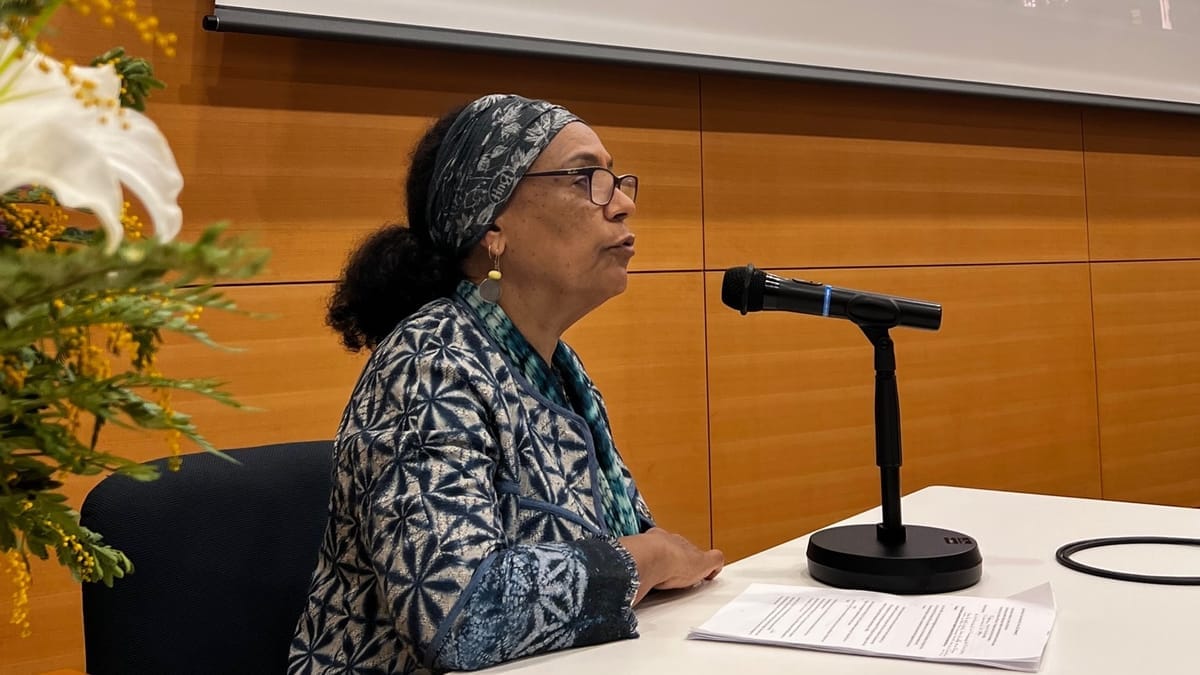
"If people continue to face horrific events and think about them from different angles, it will deter them from doing something similar in the future," said the author of “The Shadow of Imana: Travels in the Heart of Rwanda (L'ombre d'Imana),” which was published in 2000. In 2019, the Japanese translation was also published.
Tadjo, who received the Commandeur de l'Ordre des Arts et des Lettres donned by the French Government, gave a talk at the University of Tokyo in March 2023 on the significance of testimonies and memories of the survivors of Rwandan genocide.
Prompting the Imagination with Travelogues and Narratives
In the book, Tadjo recounts her experiences of visiting Rwanda in 1994 and listening to the people of Rwanda, where the genocide took place. With one-seventh of its population dead, the country was thick with deaths, and confusion persisted everywhere even after the genocide ended because perpetrators and victims lived together in the same communities.
Instead of simply reporting on her travels, Tadjo wrote prose-style records of her journey in the opening and closing chapters, with creative narratives in between. She sensed the sadness in the empty faces of the Rwandans and, once fictionalized, presented the reader with “people and scenes as if they were actually there,” thereby forcing the reader to imagine the brutality of the reality.
Literature Can Create 'Memory Spaces'
“I wanted to understand why extreme situations like genocide are caused,” Tadjo said, on the reasons for her motivation to write a book on the tragedies. Conflict continues in the world repeatedly, like civil wars and military aggression.
"Literature can create a 'space of memory' in which we can continue to think about tragic events," she said, adding that "to write is to refuse to accept the world as it is, while trying not to sink into despair.” In her message, she says we can reach an idea that can create an alternative world if we squint our eyes and gaze into the society, which may seem hopeless at times and writers must act to achieve this.
Professor Moriyuki Hoshino of the Tokyo University's Graduate School in his lecture drew parallel with Michiko Ishimure's "Kugai Jodo," which depicted Minamata disease in Japan, in the interweaving of record and memory of Tadjo's book. Professor Emeritus of Ritsumeikan University Masahiko Nishi introduced a documentary film "Shoah." While such a film is produced to recount the massacre of Jewish people, he said he felt "a spirit of resistance" for the genocide of Rwanda in that the people like Tadjo are trying an alternative method to keep the record.
Genocide: How It Is Told
The Rwandan Genocide is said to be one of the greatest tragedies of the 20th century, with an estimated 800,000 people were killed over the three months period from April 1994. (Some sources say the death toll is as high as 1 million.) Since Rwanda became independent in 1962, the Hutus held power and kept the Tutsis under unfair treatment. The civil war erupted when the second-generation Tutsis of those who fled to neighboring countries invaded Rwanda in the 1990s. Although the peace agreement was signed, those in power who feared that they'd lose their vested interests, intended to exterminate the Tutsis.
Journalists reported the genocide toward the end of the civil war, Tadjo said, and the news reached the world too late. Most reports were coming from the Western media, and the voices of African journalists were not heard due to the lack of protection and infrastructure. More lives and assets could have been saved if the United Nations and the international organizations had acted sooner and proactively understand and analyze Rwanda. The civil war perceived as a “barbaric conflict between primitive people,” she said.
Women's Perspectives on Genocide
Africans took action to change this view. When Fest'Africa, an art festival showcasing African culture, was held in France, the literary project "Rwanda: Writing through the duty to memory” was proposed to give voice to the Rwandans and express their attempts to live again. In 1998, 10 artists including Tadjo joined the project, interacting with Rwandans and creating nine literary works. Writers from Senegal, Guinea, Djibouti and other African countries participated.
“His Voice,” a creative short story in “The Shadow of Imana,” is a story of a woman written by Tadjo herself. The female protagonist who is left in the dark about what happened to her husband during the genocide is deeply hurt by his suicide after he was given cold shoulders by the people around him. One day, she receives a phone call from a man who sounded just like her husband. She goes out to meet the man expecting to see someone she had loved, but it turns out to be someone else. That night, she has a nightmare about finding his body. When she meets this man the next time, he tells her, "Those who incited atrocities to engulf Rwanda must be punished, but others should be freed from guilt."
The protagonist, who had been devastated, slowly starts to tell her story as if grasping a piece of hope.
This is how Tadjo expresses the loss and rebirth of Rwandans without depicting scenes of carnage.
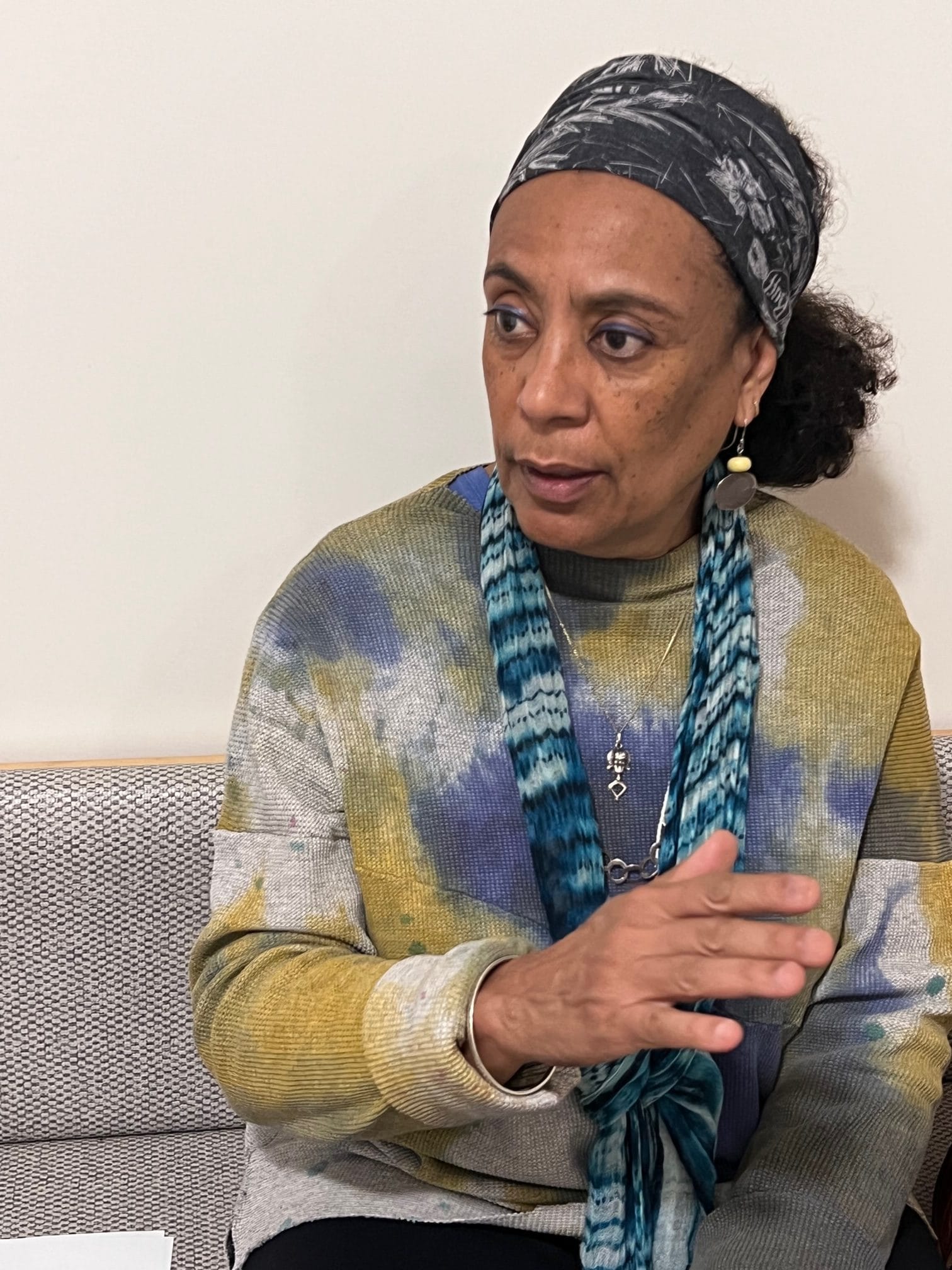
Conditions that Control Your Mind: Don't Let Them Meet
"I realized the perpetrators of the genocide were really ordinary people. That was my biggest fear," Tadjo said in an interview with Unfiltered. “I found the Rwandans were so similar to the people in my home country of Côte d'Ivoire." Genocide doesn’t only happen in Rwanda. In the 20th century alone, horrific situations are seen in Poland, Cambodia, Syria among other places. Now Ukraine is invaded by Russia.
“Political manipulation by the privileged drives ordinary people to commit murder in many countries of the world," Tadjo said. "It is not because of the era or race, but because of our inner self –– the problems of all the humanity. What we can do is to try not to cultivate the society for the powers that be to abuse it to control human minds."
In her calm tone, she reminded us what is sublime is how each of us is truly free.
This article was translated from Japanese. Read the original version here.
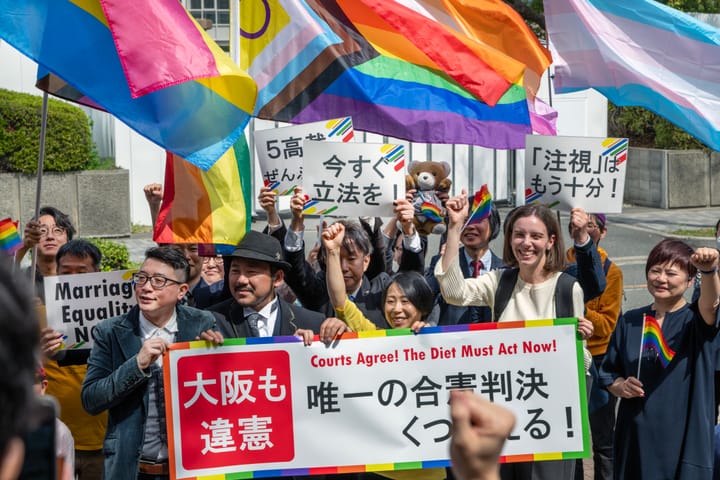
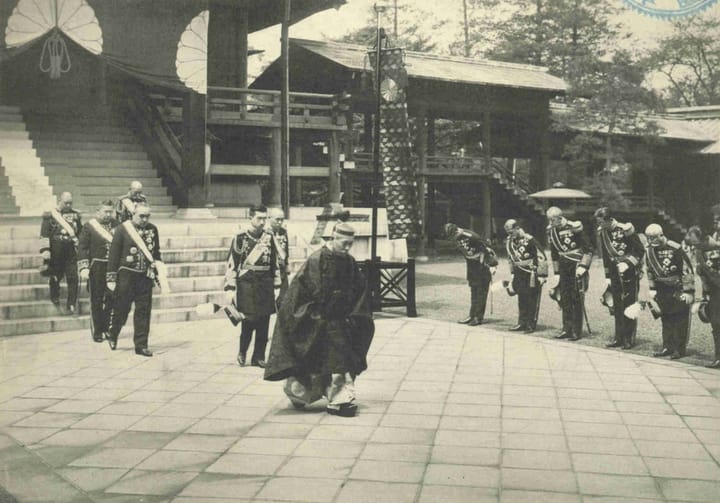
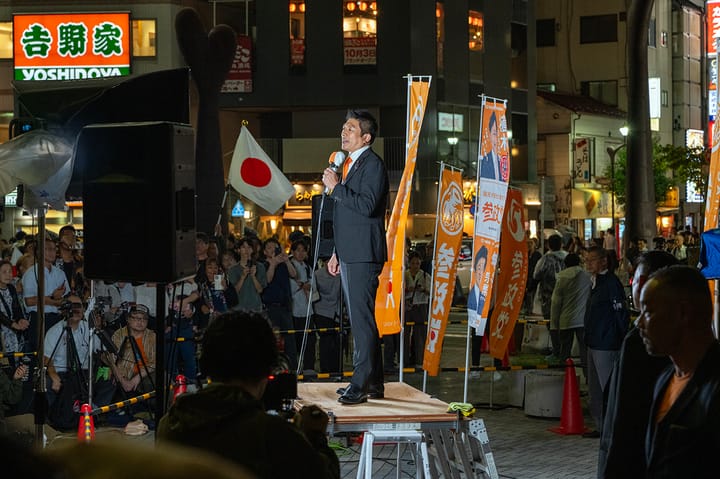
Comments ()